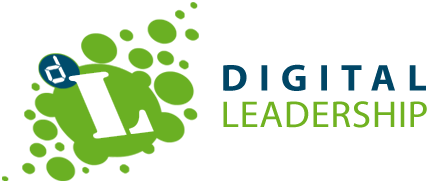Dr. Birte Gall über das Buch „Digital Leadership“

Interview with Dr. Birte Gall about her new book about leadership during digital change (Newsletter 02/2017, The Aspen Institute Germany, „Leadership Program Update 2017“)
What is the main idea of your new book?
Birte: While working with companies on acquiring knowledge, methodologies and skills to drive the digital transformation process, we learned that there is a lot of insecurity regarding the concepts of digitization. My co-authors and I decided to put them into context so that our readers can better understand the developments in
technology and society and how they impact the digitization process in companies. We explain the idea of agile working methods, transformation requirements in companies and where leadership has to take a new approach to manage innovation and the digitization proces.
How is leadership different in the digital age?
Birte: Leaders have to manage a system that is becoming more fluid and open; they have to understand that their job is not to provide solutions but to ask the right questions and to organize the process of finding the solution. It is also crucial to understand what part of the work process can be automated by digital tools in order to create space for creativity and empathy – the distinct treats that distinguish humans from machines. In addition, leadership today requires a different form of communication and collaboration, integrating more (temporary) team members while at the same time creating conditions under which knowledge worker can enter into a „deep flow“ work mode.
What inspired you?
Birte: Technology and digitization offer us a whole range of new opportunities to „de-mechanize“ work and workflows. The new speed of developments and the new options for products, services and business models push us towards a more creative, experimental approach to find pertinent solutions to new challenges. This means that we have to empower (knowledge) workers to take on a much more self-managed work approach. Decisions will have to be delegated further down the line. At the same time those then in charge of making these decisions have to accept that responsibility. Looking at companies who manage and support this shift from leadership to followership has inspired us to examine their processes and find other examples of good solutions to this change management challenge.
How has the Aspen Seminar influenced how you think about leadership?
Birte: It was a privilege to spend three days reflecting on and discussing questions at the intersection of philosophy and leadership with such a diverse and smart group of people, led by two wonderful moderators. It was intriguing to dig deeper into the question of how it affects the structure and mindset of a society depending if you define the human nature as good or bad. Transferring these considerations onto the structure and evolution of companies and other institutions has given me a deeper understanding of what kind of changes we are witnessing today.
